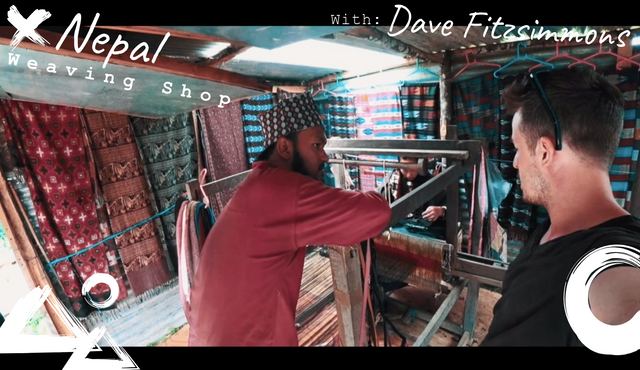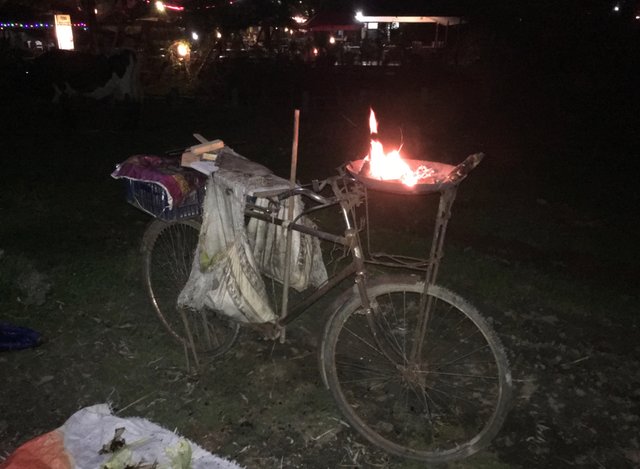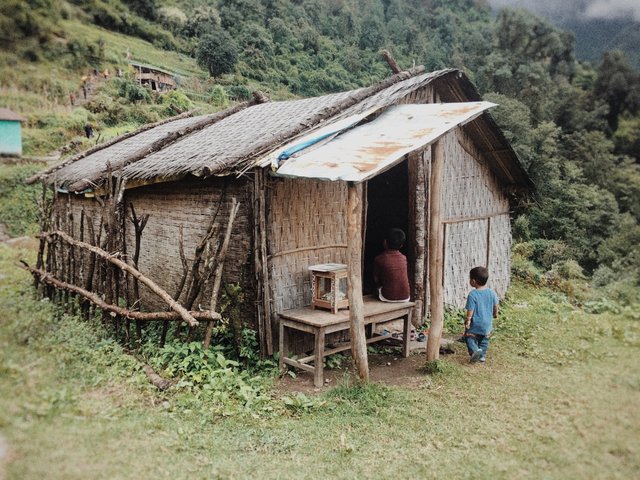Sustainable Standards and Free Trade - Pt.6
Go, See and Listen
One of my founding principles for this business was that I would not come up with my method of doing business based upon ideas that just sound good.
I wanted my foundations to be field tested. Based on practices of what people really need to improve their work opportunities.
I think far too many people nowadays are trying to outdo each other with their righteousness.
As Alan Watts said "...the reason you aren’t better is because you want to be. The problem with the world is that it’s filled with do good’ers."
So in starting a mission driven business, I’m careful about where I aim and start my Do Goodery. It's based around the ideas that people inherently seek a better situation for themselves and their loved ones, and that a stable economic opportunity, free of hazard, oppression and abuse is the bedrock of pursuing that path of improvement.
It may sound selfish, but most of my do-gooding is done for myself and for those I love. But I pursue these benefits for myself and my family in a way that is good for my communities and hopefully society as a whole.
So before I assumed I could help anyone in a far off country and a foreign work situation, I thought it damn prudent to go and see how exactly those people go about their business. What, if anything, do they need my help with?
Of course I went in with all kinds of assumptions about what people were facing related to living conditions, hazardous work, meagre pay. They all got beaten into the ground. But that part of it was actually rather enjoyable.
Being proven wrong can be very enjoyable. Especially if you don’t care about being right! I just care about being less wrong. At least I aim for that. Of course my self-esteem and ego and pride get in the way of learning more often than not. However, having "be less wrong" as my North Star has been the most useful piece of new guidance that I have internalized over the last year.
After travelling the world, and living in the plushest high rise in downtown Beijing, I was working in a very enriched position. I was working 100 hours a week, but everyone in the company loved me. Possibly because I was outgoing and dedicated to the job, but also because I had been best friends with the Owner and CEO since high school. if co-workers didn't like me they were at least smart enough to not show it. It was rare that I was challenged by anyone other than myself.
I knew everything about everything.
Snap forward to my visit to Nepal where this foreign, sometimes harsh but devastatingly beautiful developing nation was about to unload a dump truck of less wrong on me.
After all of my high-pressure startup experience working in a highly uncharted environment, I was going to have to start from scratch again. What parts of my work would translate to this environment? What can I do that stands a chance of being valuable?
When you hear the word "industry" - do you think about this?
Or this? (<--- Watch the video here)

This video is from a spot that has an amazing story of production. One that is happening in 2019, but it could have just as easily happened a thousand years ago.

A man from the city purchased this building and these two looms for production. Then employed multiple women from the village to learn how to hand weave on the looms. To get their materials someone has to put cotton thread on a or a donkey and lead the donkey up the mountain. But it allows these women to work part time from their village and earn an income without having to uproot from their family and search an opportunity in the city.
Some of these pieces (visible hanging on the walls) take more than 4 days to make.
How about this ?

For me this is the most fantastic story of modern, adaptable industry in a difficult rural landscape. Companies in Nepal have come up with a new business model to make high-end hand made carpets.
They employ workers, in their own villages all over the countryside of Nepal to weave carpets from their home. They use a system of trucks and porters to deliver the materials to their villages. When the carpets are done, the worker throws them up on a donkey, truck or porter and they get taken back to the city to a central warehouse.
What this business model allows:
- It means the family doesn’t have to uproot themselves and move into the city
- It means the women (who are the main workers for this industry) can work from home and continue to be the primary figure in the upbringing of their children
- It means their children can go to school in the village, instead of a much more crowded city school
- It means the small village community doesn’t lose a family, along with their members who are a valuable piece of the community
- And it means that the kids, husband or whoever is able bodied can work in the local farm or garden adding another service to the community and an income to the household
So you see this is a fantastic business model that is working in the way that has become counter-intuitive to how we organize and relocate people around work in modern environments.
We assume that people must go to where the jobs are. That people must move near production to be more productive.
But maybe you are more valuable as a productive member of a productive family within a small community.
In the same way that we need 2 to 3 million small businesses to keep North American gainfully employed over the next 50 years. As well might we need 2 to 3 million small communities to show us where we are most valuable.
To be soon continued.....
Check out my other posts on Steem @
- https://steemit.com/china/@almostfitz/sustainable-standards-and-free-trade-pt-5
- https://steemit.com/capitalism/@almostfitz/sustainable-standards-and-free-trade-pt-4
- https://steemit.com/nepal/@almostfitz/sustainable-standards-and-free-trade-pt-3
- https://steemit.com/startup/@almostfitz/sustainable-standards-and-free-trade-pt-2
- https://steemit.com/trade/@almostfitz/sustainable-standards-and-free-trade-pt-1
- https://steemit.com/risk/@almostfitz/day-411-you-vs-the-ledger
- https://steemit.com/pareto/@almostfitz/day-404-the-pareto-demon
- https://steemit.com/problems/@almostfitz/yeah-sure-wake-up
- https://steemit.com/problems/@almostfitz/solve-interesting-problems
- https://steemit.com/work/@almostfitz/bringing-it-home
- https://steemit.com/timing/@almostfitz/timing-is-everything
- https://steemit.com/startup/@almostfitz/today-is-free
- https://steemit.com/funding/@almostfitz/think-local-act-global
- https://steemit.com/revenue/@almostfitz/day-4-369-the-wheel-turns-all-ways
- https://steemit.com/insurance/@almostfitz/day-3-368-what-aren-t-you-insured-for
- https://steemit.com/startup/@almostfitz/day-2-find-funding-day-367-find-customers
- https://steemit.com/startup/@almostfitz/the-day-it-all-started
- https://steemit.com/startup/@almostfitz/experimenting-with-the-bogo-3-0-business-model
- https://steemit.com/startup/@almostfitz/why-this-business-data-confidence-and-shit-testing
- https://steemit.com/startup/@almostfitz/why-this-business-set-your-anchors-deep
- https://steemit.com/travel/@almostfitz/tourists-pull-your-head-out-of-your-ass
- https://steemit.com/worst/@almostfitz/the-potential-freedom-in-being-the-world-s-worst-entrepreneur-
- https://steemit.com/business/@almostfitz/open-for-business-11-pictures-about-launching-a-startup-speak-11-000-words
Check out my posts on my other blog on my Shopify store @